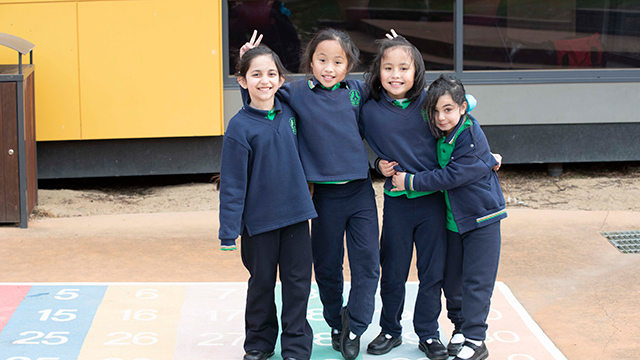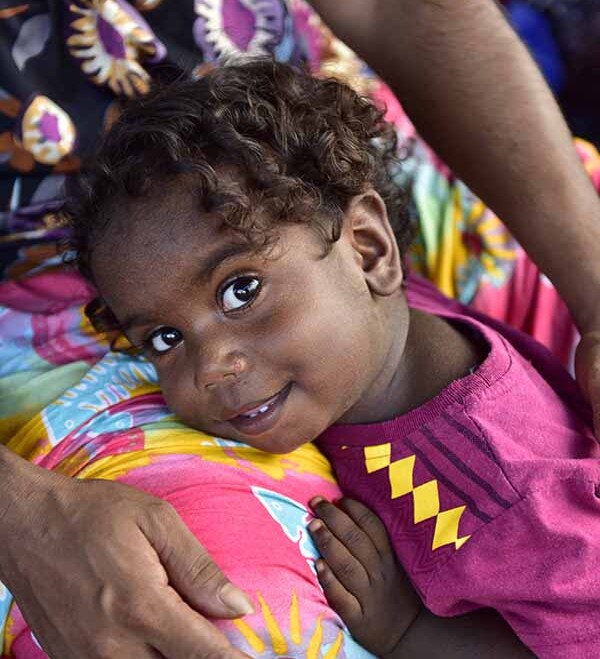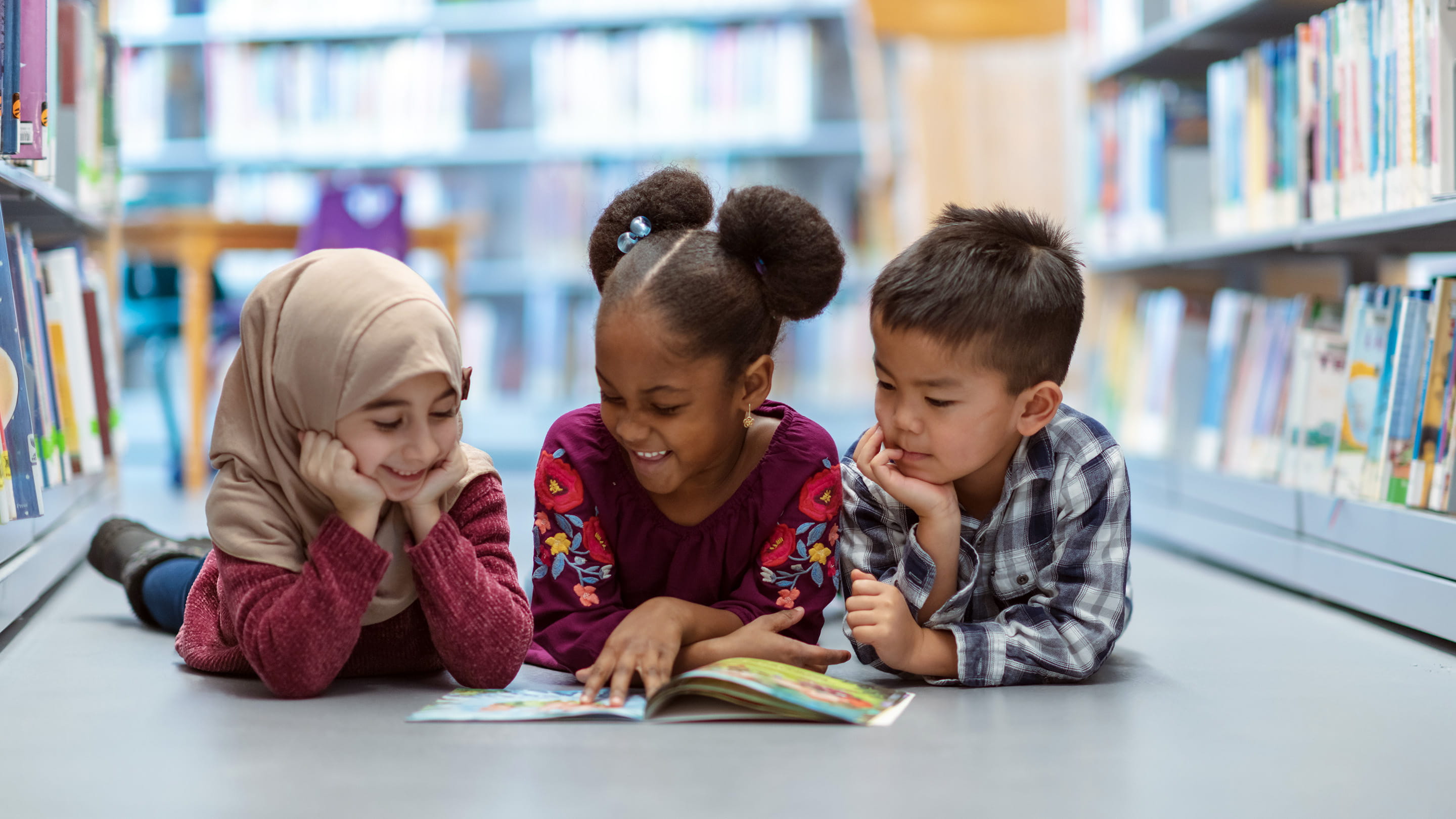On this page
Download this Fact Sheet:
Fact Sheet: Promoting cultural diversity (3.2 MB, PDF)
A whole-setting approach
Promoting cultural diversity is everyone’s responsibility.
A whole-setting approach ensures staff members from multicultural backgrounds aren’t expected to educate everyone about cultural diversity and inclusive practices. It highlights that inclusive practice requires ongoing reflection, learning and collaboration from everyone in your learning community.
A good place to start is training in cultural responsiveness and trauma-informed approaches. Ask your leader if this kind of training is available for educators.
Valuing our differences
Helping children and young people respect differences nurtures an appreciation for learning in a diverse community.
It also helps build inclusive communities, where everyone can feel a sense of belonging. This supports positive mental health and wellbeing.
Early learning services and schools are often the environments where children first become aware of differences in people. They can start to form opinions and attitudes about the differences they see.
Such awareness also means children and young people may experience racism and prejudice in direct and indirect ways.
This can have an impact on their social and emotional wellbeing, their learning and their social relationships. Their ideas about, and responses to, diversity are influenced by what they see and hear.
Learn more about cultural diversity and mental health.
How can I be inclusive?
Inclusion occurs when everyone feels valued and respected, has equal access to opportunities and can contribute their perspectives.
Looking inward is a good place to start when thinking about inclusion. Reflect on the influences that have shaped the way you see the world and others. What biases and preconceptions do you have? How can you challenge them and be open to learning?
Consider training in cultural responsiveness, cultural safety and trauma-informed approaches. This can provide a strong foundation for your ongoing learning, self-reflection and actions.
Learning and reflection can support educators to:
- respect and understand that children, young people and your colleagues have different cultural identities. This includes expectations of behaviour and communication
- acknowledge that individuals with the same cultural background can have different values, beliefs, rituals and needs
- have high expectations for all children and young people
- be prepared to discuss diversity and the importance of empathy.
How can I promote diversity in my setting?
When children and young people develop positive relationships with their peers and educators, it may help them feel they belong.
Learning about themselves and others lays the foundation for their future health and wellbeing.
In your service’s room or classroom, you can:
- provide opportunities to listen to people from different backgrounds and living experiences
- share stories or traditions from your own culture and background
- raise awareness of difference through social events, books, songs or play materials
- teach about role models from various ethnicities, genders and fields
- provide opportunities other than writing or speaking for children and young people to express their feelings. This could be through art, music or dance
- support children and young people to understand that everyone deserves respect and friendship
- explore empathy and the importance of understanding, being sensitive to, and aware of their own and other people’s feelings
- support children to develop the skills to form positive friendships regardless of different languages and backgrounds
- explore diversity through curriculum material
- encourage discussion through curriculum material
- discuss the positives of differences and how they can complement and enhance each other.
When discussing diversity through curriculum materials, be mindful of topics that may be distressing for some people. For example, talking about war and persecution.
Consider how you can explore these subjects in a sensitive and trauma-informed way. Ensure that children, young people and fellow educators are aware of support services available to them.
Things to be mindful of
It’s important that you don’t interrupt or discourage natural curiosity about cultural differences.
However, make sure you avoid tokenistic and stereotypical representations of cultures. If stereotypes arise in discussions, take the time to talk about them and why they are harmful.
In a whole learning community approach, it’s valuable to build connections with:
- culturally specific mental health services, and encourage people to access these services
- cultural community groups in your local area, who may be able to share insights and knowledge about their cultures.
How can I engage and support families?
Practise curiosity in getting to know families at your service or school. Demonstrate that you value their backgrounds and would like to learn more about them. This can help you avoid making assumptions about cultures or practices.
Understanding families' experiences and cultures can help you better support children and young people’s learning. Building strong relationships with families can also give them a sense of belonging in the learning community.
You can engage families by:
- being welcoming and approachable
- respecting different ways of being
- recognising and being aware of different family structures – they may or may not be biologically related and may include many generations and community members
- providing opportunities for families to contribute their skills and interests to the service or school
- creating awareness through respectful engagement with cultural and faith-based celebrations, such as Ramadan, Diwali and Lunar New Year
- providing opportunities for families to share their stories and cultural traditions
- creating awareness of the potential impact of international events, and the impacts these may have on children, young people or families. For example, conflicts or event anniversaries
- nurturing connections between families and with support services and social networks
- giving families choices about how to engage with, and give feedback to, your learning community
- engaging with relevant cultural community organisations
- discussing possible differences in parenting with families. This may avoid misunderstandings between families and educators, and confusion for children.
When communicating with families from diverse backgrounds, consider the following:
Interpreters or translated notices and information can help you communicate when language may be a barrier. Aim to use National Accreditation Authority for Translators and Interpreters (NAATI) professionals for formal meetings and interactions with families.
Avoid using family members, staff members, children or young people for interpreting. This practice can be particularly difficult for children and young people. It may put pressure on them and can cause distress, placing them between their educator and their family.
- Don’t assume the language required – ask the family. Some may speak multiple languages, including sign language, and have reasons for their language preferences.
- When asking about using interpreters, frame it as a mutual benefit. For example, “Should we have an interpreter so we can best understand each other?” rather than “Do you need an interpreter?”
- Check for family preferences around the gender of the interpreter and whether in-person or telephone conversations are preferred.
- Check in with the comfort levels of family members during conversations, with the option to change interpreters if preferred. Always remember to address the family, not the interpreter, when working face-to-face with families and interpreters.
- Be aware of your body language and the body language of others. For example, don’t assume that family members are not listening or engaging if they aren’t maintaining eye contact.
- Ask questions to ensure family members understand what has been said. Ensure that you give them space to ask questions or raise concerns.
Actively counter racism and discrimination
Racism and discrimination can have profoundly detrimental impacts on a person’s mental health and wellbeing. Intersecting identities can also compound challenges for children, young people and families.
You can start to counter racism by promoting positive attitudes and actions towards diversity in your learning community.
This includes identifying and changing practices that can discriminate against people from different racial and cultural backgrounds. Remember, racism is against the law under the Racial Discrimination Act 1975.
One action could be reviewing your learning community’s policies to ensure they are inclusive and anti-discriminatory. This process should involve staff members who can offer diverse perspectives. Outline clear actions to take if people breach these policies.
You can also support families and staff members who have experienced racism by:
- engaging in thoughtful conversations
- demonstrating empathy and support
- challenging prejudices, stereotypes and discriminatory behaviour
- having a zero-tolerance approach to racism in your learning community
- providing information about support services.
Read more about anti-racism information and actions in the external links at the end of this Fact Sheet.
Be You Professional Learning
Check out tips for building mentally healthy early learning services and schools in the module Understand. Explore how to promote inclusion within your learning community in the module Include.
-
External links
Building belonging: A toolkit for early childhood educators – developed by the Australian Human Rights Commission
Making Multicultural Australia
National Youth Settlement Framework – developed by Multicultural Youth Advocacy Network, this is an evidence-based national guide for good practice with young people from refugee and migrant backgrounds.
Anti-racism resources
Australian Anti-Racism Kit – a resource for secondary school students
Multicultural Youth Perspectives on Racism and the Draft Anti-Racism Framework – a report by Multicultural Youth Advocacy Network, which captures the experiences and perspectives of young people from refugee and migrant backgrounds on racism in Australia.
Racism. It stops with me – anti-racism resource developed by the Australian Human Rights Commission
Racism. No Way – anti-racism teaching resources for Australian early learning services and schools
-
Bibliography
Australian Bureau of Statistics (ABS) (2022). Cultural diversity: Census. ABS. Retrieved from https://www.abs.gov.au/statistics/people/people-and-communities/cultural-diversity-census/latest-release
Australian Human Rights Commission (AHRC) (2018). Valuing multiculturalism. Canberra: AHRC.
Diversity Council of Australia (DCA). (2023). Inclusion@Work Index 2023-2024: Mapping the state of inclusion in the Australian workforce. Sydney: DCA


